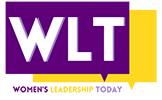
Published in Missourian
By Grace Glander
Nov 27, 2019
Thanksgiving dinner might be particularly tense this year. The impeachment of President Trump is still very much in the news, and it’s election season (isn’t it always?). A recent poll from the Public Religion Research Institute found that 91% of Americans feel that the country is divided over politics.
Here’s something to be thankful for: experts. People who devote their careers to finding ways to keep people from throwing the sweet potatoes. They have tips on what to do when politics — or other hot-button subjects — comes up.
Nancy Schnoebelen Imbs, a leadership coach and communications expert, believes it’s just good manners to respect other people’s opinions. If you can’t do that, you have to go to Plan B.
“I’m going to pivot the conversation,” she said. “I’m going to say, ‘You just reminded me of something I wanted to share.’ Just come up with another topic that changes the course of the conversation.”
What if, as might be the case in some families, trying to change the subject might not be enough to sway others from talking about politics?
You may have to flat-out tell your family that you prefer not to talk about politics, Imbs said.
“You’re uncomfortable, and somebody brings up the upcoming election — ‘Are you going to vote for Trump?’ — because Trump obviously creates a lot of stress,” she said.
If you know what the political climate of the gathering is likely to be, then you can say: “I prefer not to talk about this today. I want this to be a day of our blessings and sharing family stories and memories.”
Imbs is the founder and president of St. Louis-based Polished, a professional development company that focuses on strengthening “soft skills”: communication, emotional intelligence, business and dining etiquette and international protocol.
“What I like to tell people is that manners matter in life because they help build your confidence, your reputation, your credibility, your trust, all those good things,” Imbs said. “Plus, it’s the right thing to do, and today the good and bad of technology has sort of broken up the road of following manners all the time.”
Here are some other ways Imbs said you can pivot the conversation because there is always someone who will be triggered by politics, which can make a gathering a disaster:
- “I promised my wife that I was not going to talk politics.”
- “Oh, that reminds me, did you see ‘Dancing with the Stars?’”
- Bring up a book or movie you know a lot about.
Renita Jackson, an etiquette specialist whose company, Jackson Etiquette, offers classes in Missouri and Illinois, says it’s not good to mix politics with Thanksgiving dinner or any type of holiday gathering. It’s one of the three P’s you want to stay away from during family gatherings and holidays, she says.
The first P is the past.
“Sometimes we want to just move forward and not get into things that have happened in the past,” Jackson said.
The second P is politics.
“Everyone has their own personal views of politics, and that’s fine, but your personal views might not be someone else’s,” she said.
The third is personal issues.
“In order to keep the holiday spirit festive, avoid any personal issues that will be a Debbie Downer to your event,” Jackson said. “You want to think more in terms of Thanksgiving is the time to be thankful, so think of things that are more pleasant.”
Sophie Thiede, a 20-year-old MU student, goes with Jackson’s rules on that second P at Thanksgiving.
“We usually curb the discussion on politics because when it gets brought up, the whole table breaks into a fight,” Thiede said.
The sides usually line up with Thiede, her mother and her three sisters against her father and his side of the family.
Diana Kenney is a family mediator at Columbia-based Kenney Mediation and Legal Services. She has a technique that might help you prepare.
“The first thing you want to be able to do is to breathe deeply and pause,” Kenney said. “It’s just calming in general for people.”
The next step is to imagine yourself in a conversation with the person you don’t get along with. Imagine yourself interacting with them, getting along and feeling good.
“We can’t control other people, but we can control ourselves,” Kenney said. “So, take that moment to see yourself with that feel-good feeling.”
Rachel Ludwig, a 20-year-old MU student, wants to try this technique at Thanksgiving this year.
“Usually, I say something about politics that gets people riled up because it’s funny to watch,” Ludwig said. “Maybe this year I will be a nice daughter and try the imagination scenario.”
Another approach might be thinking of Thanksgiving as a chance to reach an understanding. Amanda Ripley’s “Complicating the Narratives” offers a helpful primer on navigating gray areas and finding compromise. She spent months talking to mediators and others with expertise on “how to get people to open up to new ideas, rather than closing down in judgment and indignation.”
Although Ripley’s research was targeted mostly at journalists, she learned something that’s useful to all people (and especially people too polite to speak with a mouth full of food): People want to feel heard before they can listen.
So, maybe have a hefty helping of listening this Thanksgiving.










































































































